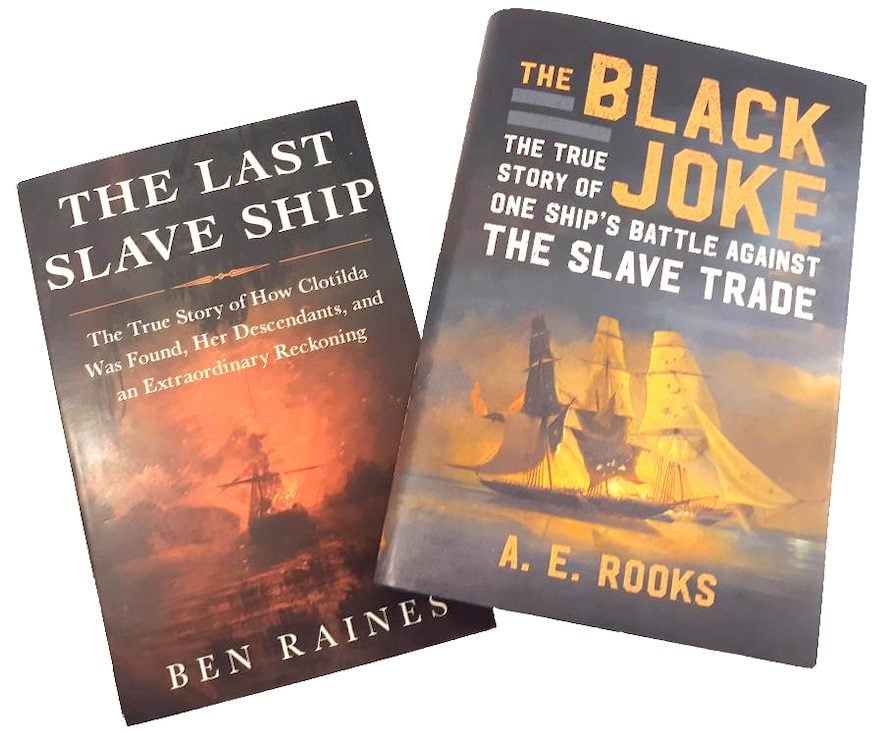You can only imagine.
There was fear, of course, but also pain and a feeling of suffocation. Surely, there was a sense of embarrassment when clothes were lost and bodily smells were unavoidable. Outrage, too, that was surely present, but you can only imagine. If you’re compelled to know, read these two great new books about the ships of the Middle Passage.
Not long ago, the news was buzzing with a very unexpected discovery: The remains of the Clotilda, a 160-year-old ship, were discovered in Alabama waters, half-burned but in good enough shape for its discoverers to know what it was and the importance it held …
“The Last Slave Ship” by Ben Raines (Simon & Schuster, $26) begins the tale of those ruins in 1860, when more than five decades had passed since the importation of slaves from Africa had become law. Still, Timothy Meaher was a betting man. Meaher wagered that he could somehow send the Clotilda across the ocean, and back with human cargo, without getting caught. History, of course, didn’t allow that.

But this isn’t just a tale of a white man and a ship. It’s also a story of warfare, the capture of 110 people and their sale in Africa by a king who showed no mercy and who almost re-captured the slaves-to-be to resell them. It’s a story of peril and politics, and it extends to the descendants of the captain and his cargo today.
“The Last Slave Ship” is an action-packed, whip-smart true account that’s filled with science, history and compassion. Readers will devour it.
A nice companion to the Raines book is “The Black Joke” by A.E. Rooks.
In the time between Napoleon’s fall in France and the very height of Queen Victoria’s reign in England, the Black Joke sailed the Atlantic on behalf of England to end the slave trade — not just in Great Britain, but on both sides of the ocean.
Until its capture by the Royal Navy in 1827, the Black Joke was a notoriously fast slave ship that shuttled humans from Africa to parts elsewhere. The Brits knew exactly what to do with it, once they had possession of the ship: They recycled it, making the Black Joke into an important part of their anti-slavery fleet and a speedy way to capture slaving vessels and free the people aboard them.
“The Last Slave Ship” by Ben Raines
$27.99
307 pages
Simon & Schuster
c.2022
“The Black Joke” by A.E. Rooks
$29
400 pages
Scribner
c.2022
Like “The Last Slave Ship,” “The Black Joke” is full of action and heroism, but in a different way: the former includes the recovery of an important bit of U.S. history, while the latter is a wider story, both in scope and geography. Readers will be happy (and very well-informed) to read one, then the other, in quick succession.
Once you’ve done that, you may want more information so check with your favorite bookseller or librarian. They have many more stories of slave ships at their fingertips, including first-hand accounts from many points of view. All you have to do is ask and you’ll find more similar books than you can imagine.







